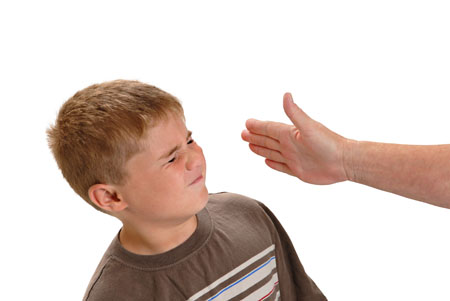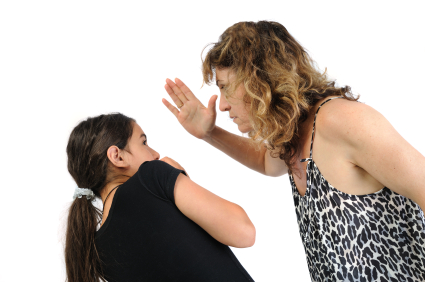Comorbid Psychiatric Disorders Impair Response to Psychosocial Treatment in Adolescents with Bipolar Disorder
At the 2019 meeting of the International Society for Bipolar Disorders, researcher Marc J. Weintraub and colleagues followed 145 adolescents with bipolar disorder over a period of two years. The adolescents with comorbid disorders (compared to those with bipolar disorder alone) fared more poorly in response to psychosocial treatment.
Weintraub and colleagues found that the adolescents who had anxiety disorders in addition to their bipolar disorder spent more weeks depressed, had more severe symptoms of (hypo)mania, and had more family conflict over the course of the study than those adolescents who had bipolar disorder alone.
Participants who had attention deficit hyperactivity disorder (ADHD) in addition to their bipolar disorder had more weeks with (hypo)manic symptoms, had more severe (hypo)manic symptoms, and greater family conflict than those with bipolar disorder alone.
Those participants with comorbid oppositional defiant disorder (ODD) or conflict disorder in addition to their bipolar disorder had more depressive symptoms and family conflict throughout the study.
Editor’s Note: How to better approach treatment in these diagnostically complex young people is an urgent unmet need, as most research excludes participants with more than one psychiatric disorder. Clinicians treating young people with bipolar disorder and comorbidities such as anxiety disorder, ADHD, and ODD must generally rely on inferences from children with these illnesses, using their own intuition about best treatment approaches rather than having evidence from systematic studies about how best to treat these children. It appears that both psychosocial and pharmacological treatments must be tailored to these more complicated presentations.
Maternal Warmth Does Not Negate Corporal Punishment
New research shows that expressions of maternal warmth following corporal punishment do not reduce children’s anxiety, and may even increase it.
The study by Jennifer E. Lansford and colleagues was published in the Journal of Clinical Child & Adolescent Psychiatry. The researchers interviewed over a thousand children aged 7–10 and their mothers about what type of physical punishment occurs in their family, and about anxiety and aggression in the children. They followed up again after one and two years. The study took place in eight countries: China, Colombia, Italy, Jordan, Kenya, the Philippines, Thailand, and the United States.
In general, corporal punishment increased anxiety in the children, while maternal warmth decreased it. How warmth and physical punishment interacted depended on the country. Anxiety increased over time in families where the mothers were high on both corporal punishment and warmth. Lansford and colleagues wrote that it might be “simply too confusing and unnerving for a child to be hit hard and loved warmly all in the same home.”
The researchers suggest that parents use nonphysical ways to promote desirable behavior in their children, including putting younger children in time-out and requiring teenagers to participate in activities that help others.
Worsening Comorbidities Relate To Adverse Bipolar Outcomes
 Many children with bipolar disorder also present with other comorbid Axis I psychiatric illnesses. Now it seems that the worsening of these comorbidities, such as attention-deficit hyperactivity disorder (ADHD) or an anxiety disorder, can signal a more difficult course of bipolar illness itself. At a symposium on the course of bipolar disorder in children at the 2013 meeting of the American Academy of Child and Adolescent Psychiatry (AACAP), Shirley Yen from Brown University discussed findings on comorbidities of childhood onset bipolar disorder from COBY, the Collaborative Child Bipolar Network. Upon study entry, 60% of children with bipolar disorder also had ADHD, 40% had oppositional defiant disorder (ODD), 39% had an anxiety disorder, 12.5% had both oppositional defiant disorder and a conduct disorder, and 9% had a substance abuse disorder.
Many children with bipolar disorder also present with other comorbid Axis I psychiatric illnesses. Now it seems that the worsening of these comorbidities, such as attention-deficit hyperactivity disorder (ADHD) or an anxiety disorder, can signal a more difficult course of bipolar illness itself. At a symposium on the course of bipolar disorder in children at the 2013 meeting of the American Academy of Child and Adolescent Psychiatry (AACAP), Shirley Yen from Brown University discussed findings on comorbidities of childhood onset bipolar disorder from COBY, the Collaborative Child Bipolar Network. Upon study entry, 60% of children with bipolar disorder also had ADHD, 40% had oppositional defiant disorder (ODD), 39% had an anxiety disorder, 12.5% had both oppositional defiant disorder and a conduct disorder, and 9% had a substance abuse disorder.
The prevalence of most of these comorbid illnesses increased over time (e.g. anxiety disorder rates increased from 39% to 62%). The illnesses were also related to the time it took participants to achieve recovery (eight consecutive weeks well), and the time until a recurrence of a depressive or manic episode.
Increases in anxiety were linked to longer time to achieve recovery and a shorter time to a recurrence. Increases in ADHD were linked to a more rapid onset of a depressive recurrence. Increases in oppositional defiant disorder and conduct disorder had no relationship with either remission or recurrence. Increases in substance abuse disorders were linked to a longer time to recover from a manic episode. Thus, worsening of the comorbid conditions had definite consequences for both recovery and recurrence.
Harsh Physical Punishment is Associated with Mood and Other Disorders
Physical punishment of children has long been a controversial subject. A 2012 article by Afifi et al. in the journal Pediatrics suggests that having experienced harsh physical punishment during childhood is associated with mood disorders, anxiety disorders, substance abuse and dependence, and personality disorders in adulthood.
In this study harsh physical punishment included pushing, grabbing, shoving, slapping, or hitting. Participants who had experienced more severe maltreatment in childhood (including physical abuse, sexual abuse, emotional abuse, physical neglect, emotional neglect, and exposure to violence between intimate partners) were excluded from the study, and the results were adjusted for sociodemographic variables and family history of dysfunction, suggesting that physical punishment was the mediator of these effects.




